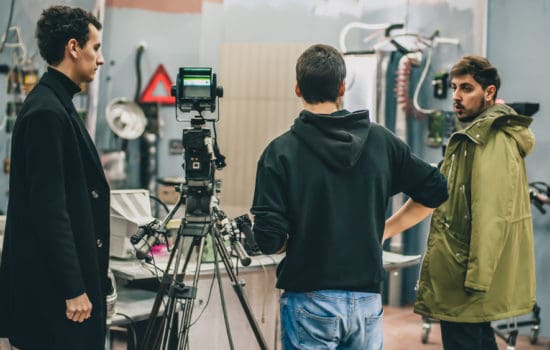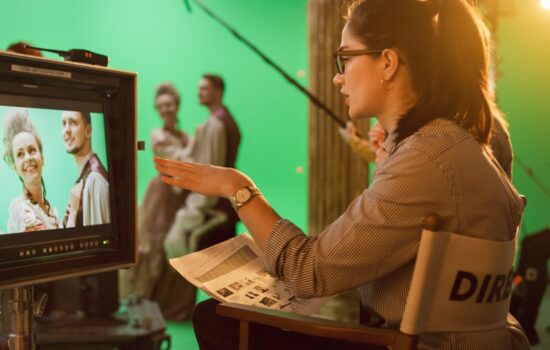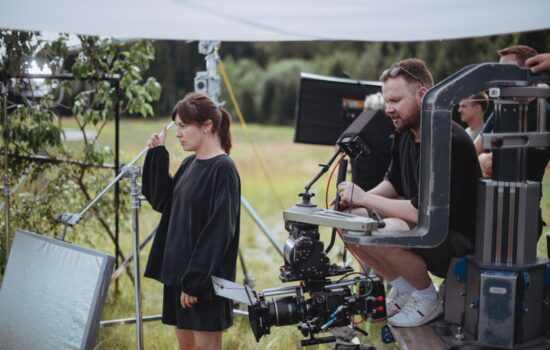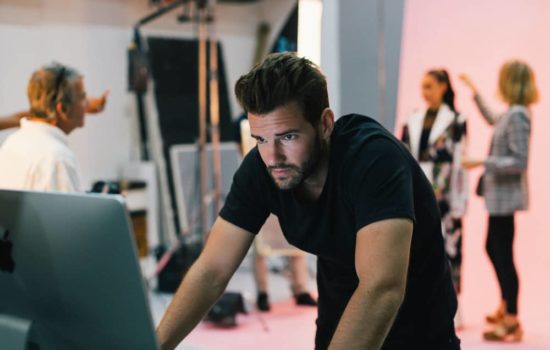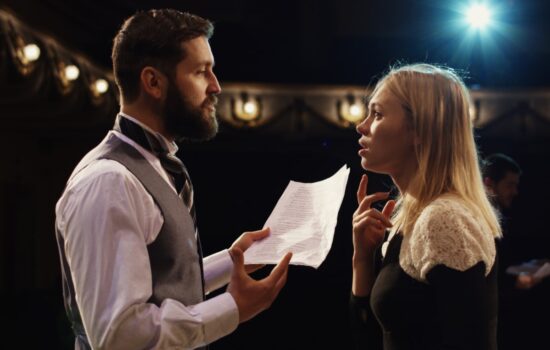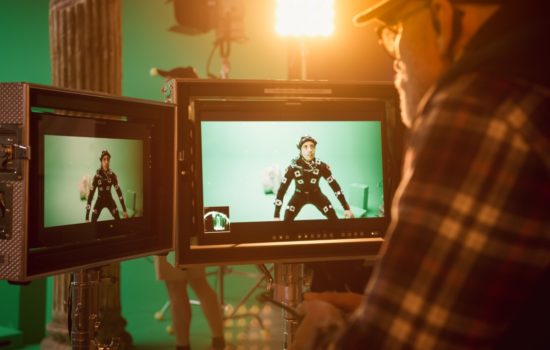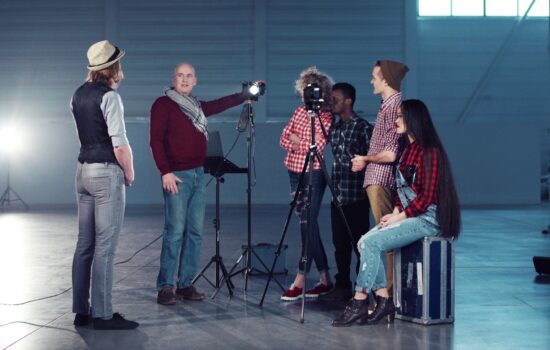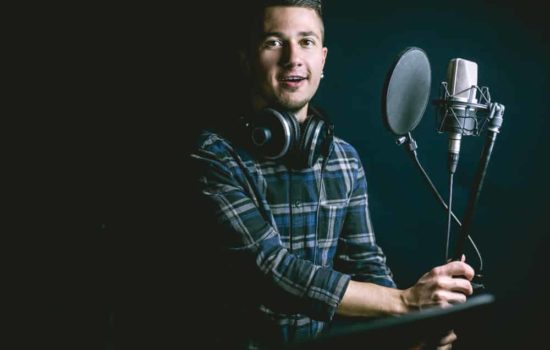Drone Pilot
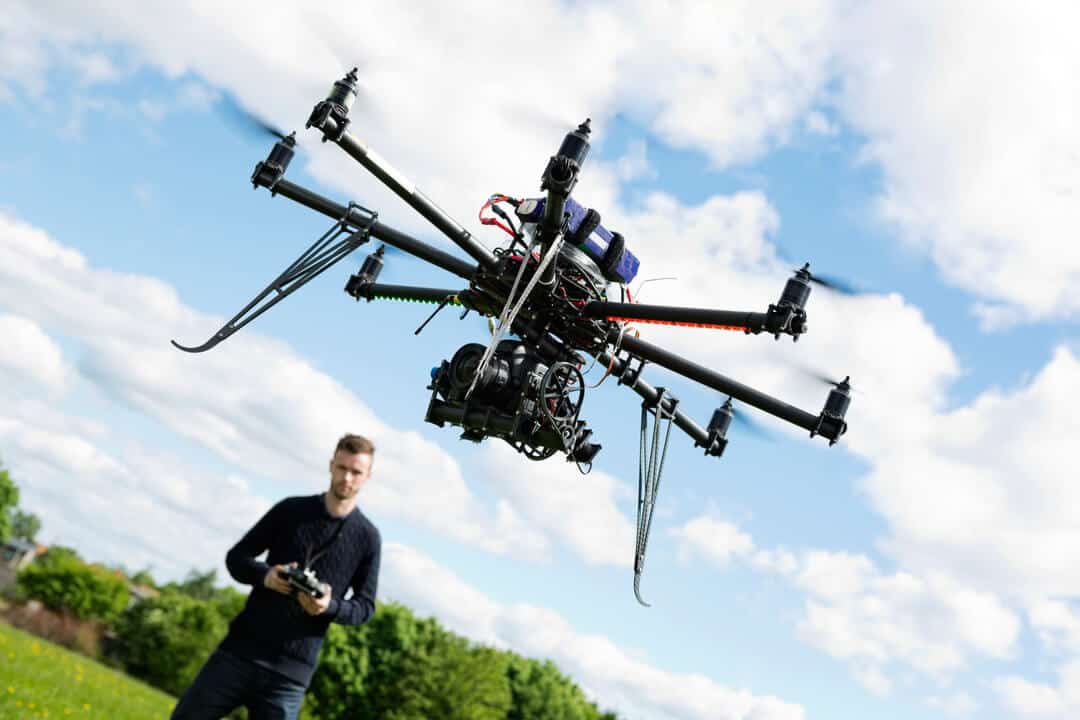
How To Become a Drone Pilot
People also ask
Career Description
For Drone Pilot Justin Sena, the typical day begins with “having a plan.” Because when he takes on a job, before he ever gets to location, he gathers as much information as he can. That means asking a lot of questions to get context about the shoot. Then comes the location scouting and shoot practicing. Knowing the lay of the land is key, as Sena “never goes in blind.”
On the day of the shoot, there’s a lot of hurry up and wait. The drone shots are often the last to be filmed, so as he waits, Sena typically shoots B-roll—supplemental footage—until he gets the go-ahead. In the meantime, he makes sure that he’s communicating with the crew. “Things can change quickly,” says Sena, so it’s essential to be in the loop.
Sena also emphasizes that once on location, all that practice shooting becomes essential, as often there won’t be an opportunity for multiple takes.
Are Drone Pilots in demand?
Absolutely! Given the aesthetically pleasing look of drone footage, as well as the difficulty in attaining it through other means, Drone Pilots are in demand for their expertise and ability to provide unique footage for a project.
Salary
The average annual salary for a Drone Pilot is approximately $82,800. The salary range for Drone Pilots runs from $73,000 to $116,000.
Unless a person is an in-house Drone Pilot for a production company or studio, which is rare, they will be an independently contracted worker for each project they work on. That means that person will be responsible for their own taxes and benefits. Because of this, Sena recommends that aspiring Drone Operators ask themselves if this is a lifestyle they can truly be comfortable with.
As stated before, more experienced Drone Pilots who come with their own equipment and insurance can often earn more than a Drone Pilot without those assets, as the hiring production company or studio would otherwise have to pay for them separately.
Can Drone Pilots make good money?
Yes, they can! It all depends on their experience and types of gigs they get – not to mention the overall volume of work in a year. That being said, the average salary for a Drone Pilot is just over $57,000.
Hey, what do you think about trying our new Film Career HelperFilm Career Helper really quick? It’s totally free and could help get your career moving fast! Give it a try. It’s totally free and you have nothing to lose.
Career Outlook
The lifestyle of a Drone Operator can vary widely from person to person. Sena’s career has taken him across the globe, but the job doesn’t always require a lot of travel.
Some Drone Pilots can do very well for themselves locally, especially if they focus on jobs like filming weddings and other events that keep them close to home. And unlike many professions in the entertainment industry, it’s not a must to be in Los Angeles. A Drone Operator can be successful anywhere.
But when on the job, no matter what or where it is, Sena stresses that there are often few chances to relax. The job is usually not very glamorous, and especially for someone just starting out, it might mean taking on as much work as possible to gain experience and make contacts.
Depending on the job, Sena typically has the chance to discuss the shots needed with the Director and Director of Photography before the shoot. The Line Producer is typically involved with pre-production talks as well.
In fact, Sena encourages any aspiring Drone Operator to join as many production and tech meetings as possible. Again, it’s all about having as much information as possible before a shoot to be as prepared as possible.
Career Path
Sena’s career in the entertainment industry began as a Production Assistant on American Idol, which he states was pivotal because it was the first chance he had to “learn what I wanted to do and what I didn’t want to do.” That being said, Sena is quick to mention that no matter how big or small the job, it’s important to always be professional, friendly and accountable.
By doing what’s expected of them and doing it with a great attitude, a Production Assistant can get noticed—and that’s exactly what happened to Sena. He joined Mark Burnett Productions where he rose to Operations Manager. Because of it, he was able to assist on multiple shows from pre-production to post, learning all the inner workings of unscripted television.
Says Sena, “Go above and beyond no matter who you’re working for.” With this strong work ethic, Sena was eventually offered the chance to produce, which he still does.
However, it was his exposure to many different locales and curiosity about drone cameras that eventually drew him to become a Drone Operator. Was it a typical way to enter this profession? Sena answers, “There’s no one way that works for everyone,” so it’s hard to say what’s a typical path to it.
As Sena mentioned earlier, being a Production Assistant is invaluable to understanding all the facets of production and learning what best suits their talents.
He also encourages those looking to become Drone Pilots to take on internships or Camera Assistant jobs. To get those positions, he recommends using Facebook and LinkedIn to network with others in the industry. Lastly, having a website can be key for marketing oneself and getting those jobs. As Sena states, “You have to have a business mentality.”
To start on the path of becoming a Drone Pilot, Sena has a few tips:
- Start learning how to use a drone. Brand new to it? Get a cheap drone, read the instructions, watch tutorials, go somewhere and just start to fly.
- Know the basic laws and regulations before flying. Even recreational fliers have rules to follow.
- Go online and seek out other local Drone Operators.
- Connect to professionals and PA for them if possible.
- Be relentless!
What does a Drone Pilot do?
A Drone Pilot is the person who controls the movements and flight of a drone.
Experience & Skills
For someone who aspires to be a Drone Operator, a key skill is “knowing how to work the problem backward,” says Sena. That means knowing what needs to be achieved and figuring out how to do it.
Every shoot will be different, so even though experience can be helpful, the job is never a one size fits all. To accomplish what they’ve been hired to do, a Drone Pilot must have common sense, a clear vision and logic to work the problem.
According to Sena, the person who is most likely to succeed as a Drone Pilot is the same person who is likely to succeed as a Sound Mixer, DIT or Camera Operator. How so? Because what’s common to all those professions is the ability to apply technical skills to a creative endeavor.
Moreover, a successful Drone Operator must use that technical and creative passion to accomplish the job, so having a can-do attitude is important. Given that shooting a film, television show, music video or any other kind of media is a highly collaborative endeavor, having an easy-going personality and being a team player will also take a Drone Pilot far.
Education & Training
Sena went to school for business management and marketing, but he learned how to become a Drone Pilot on his own. That being said, he emphasizes how important it is to have a business and marketing sense. “You have to realize that you’re a business.”
That business sense can become vital when marketing skillsets and making professional contacts. It can also have an impact on income, as a Drone Operator who sets themselves up as a business with their own insurance and equipment can both be hired at a higher rate and rent out their equipment to others.
As far as gaining the skills of a Drone Pilot, it all depends on how someone learns best. That might mean classes for one person or going online to figure it out for another person. Sena falls into the latter category. Either way, he states, “It’s easy to climb if you do the work.”
A few facts and legal considerations for aspiring Drone Operators… The FAA requires Remote Pilot Certification to fly professionally—meaning, for money. To get certified, a person must be at least 16 years old and pass the FAA’s aeronautical knowledge test, which is part 107 of its study guide.
Instructor Tony Northrup also has an excellent video from 2017 that can provide additional guidance. Sena’s advice is to read the manual, watch the video—multiple times—and take notes.
Additional Resources
When it comes to resources for Drone Operators, Sena says, “Google and YouTube are your best friends.” The internet provides limitless access to videos, manuals and other tutorials that can help a Drone Pilot hone and expand their skills. Plus, through these resources, Drone Pilots can learn both creative tips and legal regulations.
He emphasizes that safety should always be the top priority. “What is legal is what you should learn,” he adds. Too many people are reckless when it comes to using drones, but by being safe and smart, an aspiring Drone Pilot can go far.
Also, always be professional. That means getting insurance — even for a non-paying job — because trying to save a few dollars might just mean much bigger expenses later on if equipment gets damaged, or worse, a person gets injured.
FAQ
What is the single biggest suggestion you would give to someone wanting to get into this career?
“Work the problem backwards,” emphasizes Sena. He adds, “See where you want to be. By finding out what you love to do and talking to a lot of people, you can be successful.”
What’s the #1 mistake people make when trying to get into this career?
Sena states, “Not having common sense.” Many amateur Drone Pilots fail to follow the law, such as staying clear of air space, which can easily result in not only fines but also legal action taken against them. Just one mistake can derail a career, so don’t risk a cool shot that could cost a long and successful future in this profession.”
What is the question people should ask about this career but rarely do?
“More so than asking about the career of being a Drone Operator, an aspiring Operator should be asking about the specifics of a job. It all comes back to being as prepared as possible for every single project. Once a job is accepted, the production expects the Drone Operator to do what’s expected of them. Only when the right questions are asked about available resources, support and cameras can a Drone Pilot have a successful shoot.”
If you could describe in one word what makes you successful, what would it be?
“Make it happen. (A bit of a cheat with three words, but they’re good ones!)”
Sources
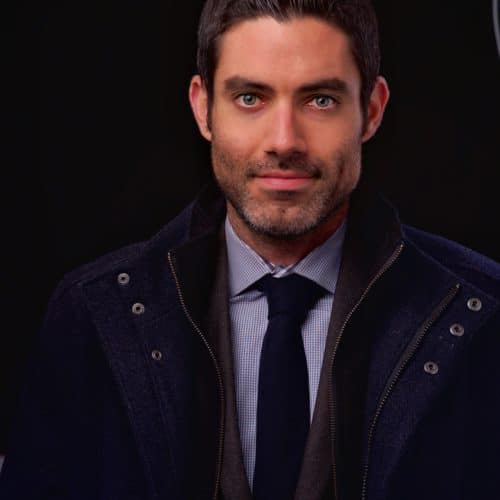
Justin Sena
Justin Sena is a TV Producer & FAA Certified Drone Pilot who never meant for a career in production.
After graduating from the University of North Florida with a degree in business and a passion for playing the drums, Justin packed up his car and drove across the country from Miami to Los Angeles to pursue a career in the music industry, but with an open mind and a strong work ethic, a two-week PA position on American Idol turned into a 10-year career in production.
Justin has produced some of the biggest shows on TV, including The Amazing Race, The Bachelor, and America’s Next Top Model, and has spent much of his professional career living life on the road in production traveling across the globe. From Australia to Indonesia, Justin never knows where the next project will take him or what experiences he will encounter.
From swimming with sharks in Bora Bora to camping with the Palins in Alaska, production can lead to some pretty interesting situations most people wouldn’t believe, so Justin began traveling with a GoPro to document his experiences and eventually bought his first small drone. From drums to drones, Justin was quickly hooked and would fly every chance he could get.
As fate would have it, Justin was in production on a remote island when the show’s Drone Pilot crashed their drone. With no options for rentals or repair and a network mandate for aerials, Justin decided it was finally time to purchase a professional drone and start studying for Part 107 to become FAA certified.
References
- 1. "UAV Pilot Salaries". Glassdoor. published: October 7, 2017. retrieved on: April 14, 2020
